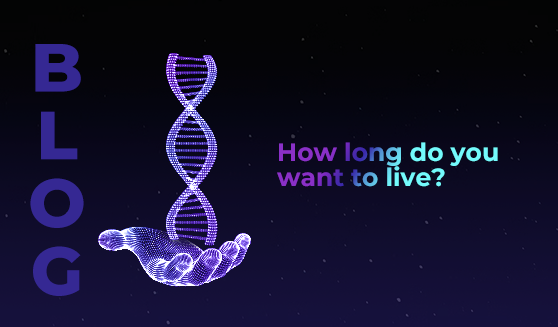
Why sustainability is the heart of the smart city revolution
The smart cities of the future will use tech to lower emissions, cut urban temperatures, and improve quality of life in highly populated areas.


Imagine if you could maintain your biological age at 25, and mitigate the impact of age-related illness?
What if you could look into the future and know that it’s possible to live to an old age while still feeling healthy, vibrant, and energised?
The manipulation of gene expression in healthcare has the potential to change the way we age. And LEAP 2024 speaker Noah Davidsohn (Chief Scientific Officer and Co-founder at Rejuvenate Bio) is at the forefront of this field.
We asked him how he got interested in epigenetics, and what kind of impact gene expression therapies could have on our lives in the future.
“My career journey has been a little circuitous. I started with a major in applied physics at Caltech, but as I neared graduation, I realised my true passion lay in working on projects that could improve the quality of and extend human life.
“This led me away from my initial path aiming to travel the stars to trying to engineer nano-machines.
“During my time in an electrical engineering program, I quickly discovered that my vision for what I wanted a nano-machine to do was more aligned with science fiction. However, I found that the most impressive 'nano-machines' were actually biological cells. This revelation steered me towards genetic engineering, focusing on enhancing cellular functions.
“My Ph.D. research at M.I.T. was dedicated to this, and I further honed my skills in George Church’s lab at Harvard during my postdoc, concentrating on age-reversal therapeutics that utilised gene therapy.
“I was particularly drawn to epigenetics for its potential to create a significant impact on the entire status of the cell, aiming to reset cells to a younger state. This journey culminated in the founding of Rejuvenate Bio in 2018, launched from the Wyss Institute at Harvard, with a focus on developing these groundbreaking therapeutics.”
“Over the past year, Rejuvenate Bio has achieved significant milestones. We have made promising advancements with our lead therapeutic candidate, particularly in treating cardiac conditions, outperforming other gene-replacement strategies. We received positive feedback from the FDA on our Pre-IND, which gives us the go-ahead for our pre-clinical plan, paving the way for an IND.
“Additionally, we've published a preprint demonstrating our ability to reverse ageing and extend life in very old mice, which is equivalent to doubling the remaining life and health of an 80-year-old human.”
“Manipulating gene expression through epigenetic programs holds the potential to revolutionise healthcare. By maintaining a biological age of, say, 25 years, we could significantly reduce or even eliminate many diseases prevalent in Western societies, such as heart disease, cancer, and Alzheimer's.
“This approach could dramatically change society, offering people more time to contribute actively and constructively. Imagine the possibilities if brilliant minds like Einstein had an additional 100 years.”
“The main challenges are regulatory and technological. Currently, there isn't a straightforward regulatory path for age-reversal interventions. Companies like ours need to demonstrate the efficacy in treating specific age-related diseases as a starting point.
“Technologically, we're still limited in our ability to modify every cell in an adult human. While we can target a significant portion of organs like the liver, and to a lesser extent the heart, muscle, and brain, these require separate therapies. A holistic treatment affecting every organ is still beyond our current capabilities. The development of more efficient delivery technologies beyond nanoparticles or engineered viruses would be a monumental breakthrough in this field.”
“Events like LEAP hold immense value for me because they provide a platform for expanding horizons, both for myself and others. LEAP serves as a crucial forum for sharing passions, gaining new perspectives, and interacting with others who share similar as well as different interests.
“It's a place for ideation and collaboration, especially important given the current healthcare challenges. With six in ten Americans living with chronic age-related diseases and global healthcare systems under financial strain, our approach to healthcare needs reevaluation.
“My goal is to introduce therapeutics that not only treat various diseases but also enhance overall health-span. LEAP offers a unique opportunity to connect with potential partners and supporters, vital for turning this vision into a reality.”
Thanks to Noah Davidsohn at Rejuvenate Bio. Learn more about cutting edge biotech at LEAP.

The smart cities of the future will use tech to lower emissions, cut urban temperatures, and improve quality of life in highly populated areas.

Discover the cities that rank highly for smart city preparedness, and learn why locally relevant innovation is more important than cutting-edge tech.

If you’ve ever thought about becoming a tech investor, read this – learn why investors are the quiet force shaping the future of the industry.

The smart cities of the future will use tech to lower emissions, cut urban temperatures, and improve quality of life in highly populated areas.

Discover the cities that rank highly for smart city preparedness, and learn why locally relevant innovation is more important than cutting-edge tech.

If you’ve ever thought about becoming a tech investor, read this – learn why investors are the quiet force shaping the future of the industry.